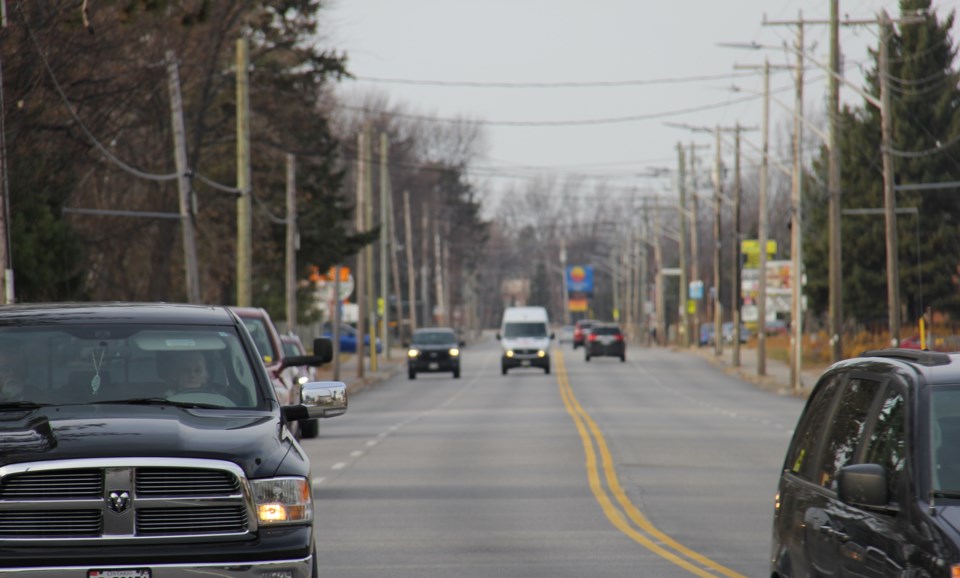"Larry" (name has been changed) admits that he was confused, preoccupied, perhaps even overcome with grief when he drove his car through a storefront window in his early 80s.
You see, he had just lost his wife of nearly 60 years after a lengthy illness, and he was in a hurry to post a letter at the mailbox located outside his neighbourhood convenience store, an act he had done hundreds of times before without incident.
Only this time, as he pulled into the store's parking lot, Larry hit the accelerator instead of the brake, careening over the walkway in front of the store and crashing his vehicle through the front windows.
Thankfully, nobody was hurt in the incident, "just his pride," Larry said later. Larry had been driving for nearly 70 years and had never received a speeding ticket, let alone been at fault for an accident. The city police attended and were sympathetic, telling Larry that a person of any age could have made the same mistake.
Insurance covered the damages to the store, as well as to Larry's car. He recounts that he initially considered never driving again, more due to the embarrassment he felt over the ordeal.
Larry admitted that he had been in a rush to visit his wife at the graveyard, something he continues to do three or four times weekly, six years after her passing.
The accident changed his perspective on driving as a senior, Larry says. When he crashed his car, he had already twice passed the senior driver's licence renewal program.
Due to his accident, Larry made adjustments to his driving habits. He stopped driving at night. No more long distance trips behind the wheel. A family member would drive him to family events in southern Ontario or he would not go at all. He has had his current vehicle for almost five years, he says, and has not cracked the 10,000 km mark.
Larry is a proud man, but he is also wise. He knew that his driving skills were fading, as was his vision and hearing. So, he passed his licence renewal just shy of his 90th birthday and swears this will be his last year behind the wheel.
Larry still lives in the family home that he shared with his beloved wife. He does the housework himself, cooks for himself (but says that his family is always bringing his favourite dishes for him to eat), but in the last five years has had to hire a contractor to take care of the snow and lawn, something Larry says was difficult to do for a man who worked hard his whole life.
"With my car, I do my groceries, go to medical appointments, go to church, and visit my wife. It is my independence. I don't like relying on other people," said Larry.
As our population trends upward in age, government and social services agencies are tackling the nuances of how best to facilitate challenges faced by senior citizens in their day-to-day lives.
Take our poll: How do you feel about senior citizens driving in Ontario?
With this aging of the population comes a variety of societal issues, not the least of which is the increasing number of senior citizens driving on our roadways.Waiting lists for assisted-living facilities are becoming the norm, and longer life expectancy and medical advances are helping the elderly experience a better quality of life for a longer period of time, the cohort of senior citizens grows yearly.
This is not to say that seniors are the only segment of the population that warrants monitoring, according to the regulations of the province of Ontario. Graduated licencing has been in effect for new drivers since the end of the last century, a program that limits the privileges of new drivers while meeting milestones along the way to obtaining a full G licence.
The key word is "privilege." Driving instructors and parents alike hammer home the message to new drivers that driving, and possessing a driver's licence, is not an inalienable right but a privilege.
So, what then is the province to do with someone who has been driving for 50, 60, or even 70-plus years? Assuming a good driving record, has this segment of the population earned the privilege to continue driving, and to make the decision, like Larry when it is time to stop?
The Ministry of Transportation of Ontario (MTO) currently requires a 90-minute renewal process for drivers 80 years of age or older. According to the MTO website:
Ontario's senior driver programs aim to keep seniors driving for as long as they can safely do so.
Once drivers reach 80 years of age, every two years they must:
- Take a vision test
- Undergo a driver record review
- Participate in a 45-minute Group Education Session (GES)
- During the GES, complete two, brief, non-computerized in-class screening assignments
- If necessary, take a road test
*see the full 32-page GES booklet here
Please note that this is a licence renewal program. Existing and valid licenses will be not revoked, but all requirements need to be met before your licence is renewed.
Once you've completed the group session and screening components you may be asked to take a road test or submit medical information from your doctor.



